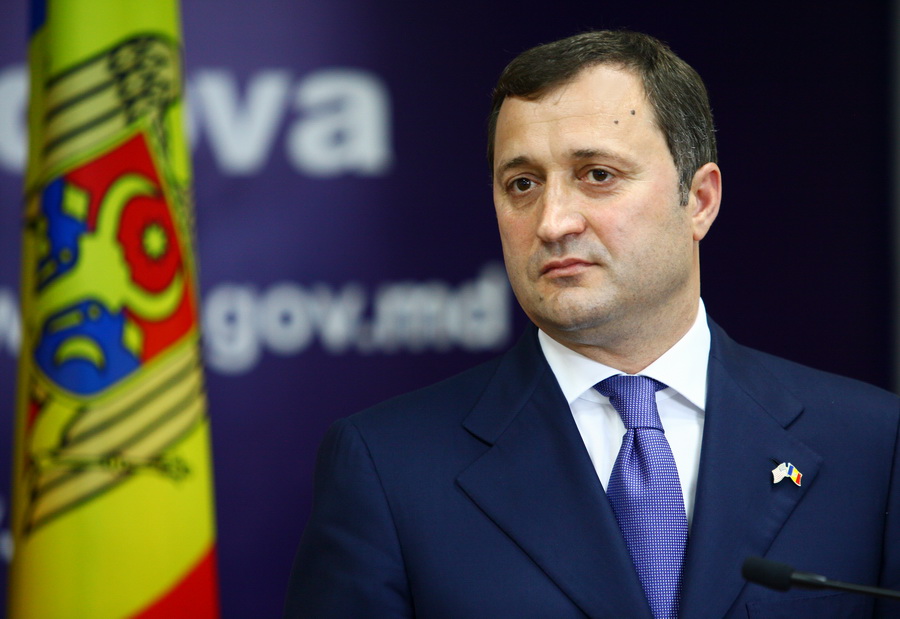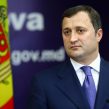
Inside Moldova’s Governing Coalition After the Elections (Part One)
Publication: Eurasia Daily Monitor Volume: 11 Issue: 217
By:

Moldova’s Pro-Europe Coalition should be able to continue governing after the November 30 parliamentary elections (see EDM, December 2, 3, 4). The coalition’s three parties—each running separately—garnered a combined 46 percent of the votes cast (down from 52 percent at the preceding elections in 2010). Thanks to the redistributive proportional system, these three parties have narrowly preserved a combined parliamentary majority of 55 seats in the 101-parliament (down from 59 in 2010).
This outcome is far from reassuring to Moldova’s pro-Europe forces. The vote failed to reward the government’s pro-Western team for its performance on reforms. That team, affiliated with the Liberal-Democrat Party, controls only some parts of the government. The November 30 vote has, instead, strengthened the rivals of that party within the coalition government (see below).
Meanwhile on the opposition side, the outright pro-Russia vote has, for the first time, outnumbered the Moldovan version of a Euro-skeptic vote. This reflects Russia’s resurgence and its impact on Moldova’s internal politics. The sudden rise of a pro-Russian radical Left and the Liberal-Democrat Party’s setbacks on the Right are the alarming net results of these Moldovan elections.
Nor does the vote adequately reflect the European Union’s efforts to advance the partnership with Moldova. The EU-Moldova association agreement, free-trade agreement, and visa-free travel agreement were all signed and went into effect in recent months. Moldova’s Liberal-Democrat-controlled ministries made this possible by delivering the relevant, sector-specific reforms, under prime ministers Vlad Filat and Iurie Leanca (both from that party). The agreements’ signing was timed to favor the Pro-Europe Coalition’s parties in the elections. Two weeks ahead of the vote, the EU allocated an additional €550 million ($676 million) to support the country’s infrastructure development and governance reform programs.
However, the elections’ overall outcome failed to meet those hopes and expectations. The outcome would have been undoubtedly worse in the absence of those rewards and incentives from the EU. As Prime Minister Leanca told the country after the vote, “We understand your message. You will not elect us again if we do not really reform the country. This is Moldova’s last chance” (Moldpres, December 3).
The Pro-Europe Coalition of three parties (PEC) has governed Moldova since 2009. The tripartite PEC is a coalition in name only. These five years have witnessed incessant attacks by the Democratic Party and Liberal Party against the coalition’s leading Liberal-Democrat Party, resulting in chaos and permanent crisis, and disorienting voters and compromising the European idea. The coalition’s pro-Europe title is also purely nominal. The Democratic Party under billionaire Vlad Plahotniuc actually holds a Euro-skeptic view, attempting to position itself “between East and West,” and using its strong influence on the judiciary and law enforcement to block reforms throughout the system. The smaller, pro-Romanian Liberal Party under Mihai Ghimpu, allied with the Democratic Party (a coalition within the coalition) has also obstructed key reforms, focusing instead on cutting down its rival, the Liberal-Democrats.
The Liberal-Democrats are the sole unequivocally pro-US and pro-EU party in this coalition and in Moldova as a whole. The party has dropped to 23 parliamentary seats in these elections, down from the 32 in 2010. Party leader Vlad Filat has invited the other two parties to reconstitute the same coalition (Unimedia, December 1, 4).
This invitation corresponds with EU officials’ long-time insistence on maintaining this same coalition. They clung to the existing tripartite coalition for fear of a Communist revanche in Moldova, and for that reason arm-twisted Filat’s party into the suffocating embrace of Plahotniuc’s party.
However, the late surge of radical pro-Russia forces against a more moderate Communist Party caused Brussels to adjust its view. Shortly before the election, EU officials signaled several times publicly that they would continue working with the post-election government even if it included the Communist Party in a coalition. By that time, however, the Liberal-Democrat Party had suffered significant damage from its association with Plahotniuc’s party. Voters could no longer clearly differentiate between these two parties.
That shotgun wedding led to an undeclared non-aggression pact between these two parties ahead of the parliamentary elections. Plahotniuc’s ownership control of four country-wide television channels (including the top-rated ones) also intimidated the Liberal-Democrats into strict adherence to the informal non-aggression pact. Moldovan print journalists traced corruption affairs and control over law enforcement and judiciary to Plahotniuc’s business interests during this whole time. The Liberal-Democrats, however, kept silent on these issues during the electoral campaign.
Making matters worse, the coalition government had agreed to hand over the Chisinau International Airport to a Russian company (and an obscure one at that), the transaction being handled by Democratic Party representatives in the government (see EDM, October 9, 2013). And the controlling share package in Moldova’s Banca de Economii ended up in the hands of Russia’s state-controlled VneshEkonomBank in ways that have yet to be explained.
The Liberal-Democrat Party’s campaign strategy did not capitalize on these developments. The party’s strategy (as encouraged also by the EU) was, instead, to display collegiality among the coalition partners, and even to credit the EU Association Agreements to the government as a whole, instead of claiming the credit for the Liberal-Democrats, as would have been accurate. Thus, the credit spread unfairly across the “coalition,” irrespective of the parties’ own merits.
The decisions to adopt and then cling to this campaign strategy underestimated the Moldovan voters’ overriding interest in combating high-level corruption, rather than advancing the necessary but (to them) rather abstract-sounding reforms. A campaign strategy of stark differentiation from corrupt interests would have benefited the Liberal-Democrats. Instead, they have suffered losses in these elections. Even so, this party remains by far the largest pro-Western force in Moldova after the elections and seems set to lead the post-election government, regardless of its composition. That composition is to be negotiated arduously and at some length.




